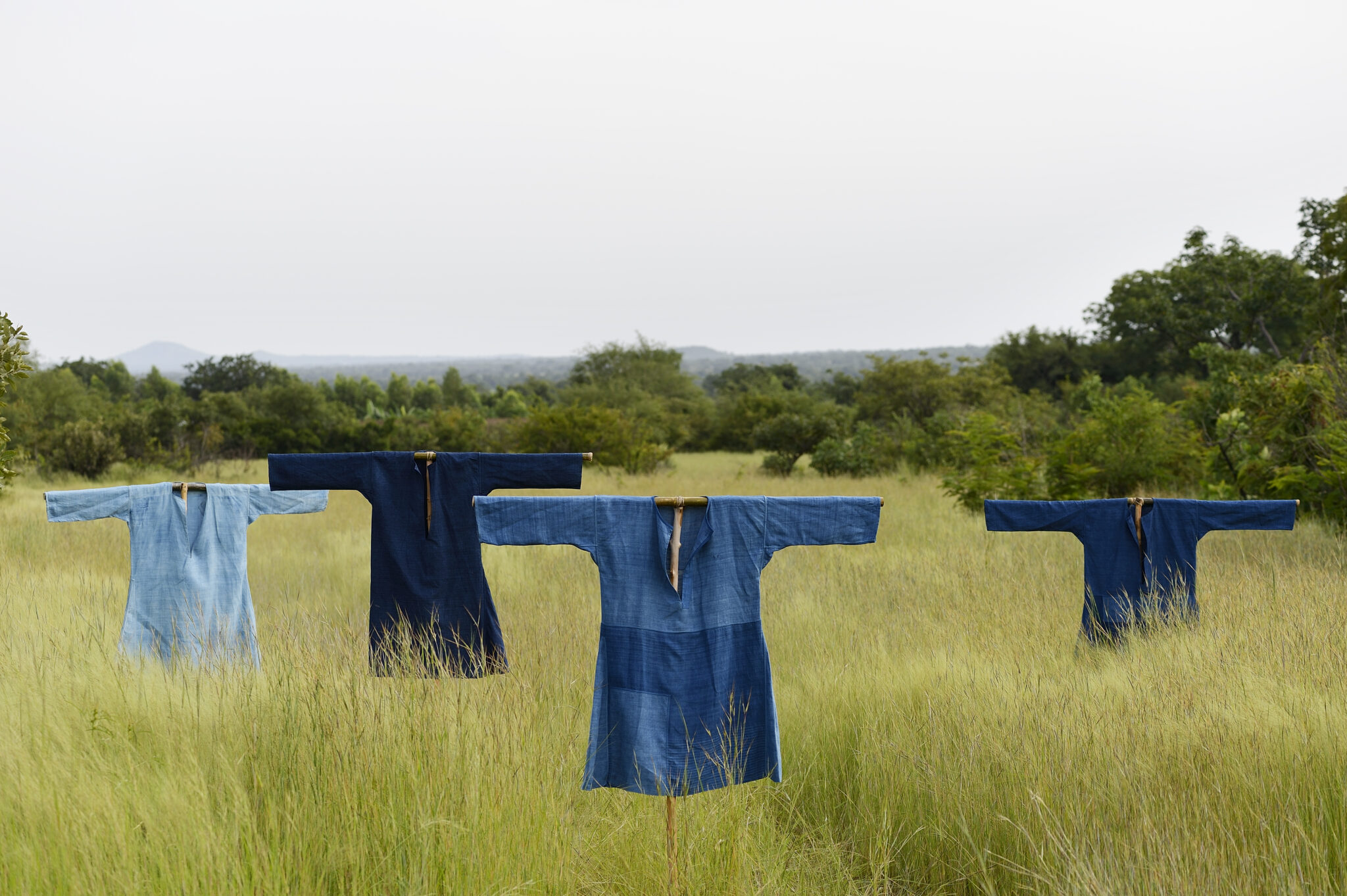
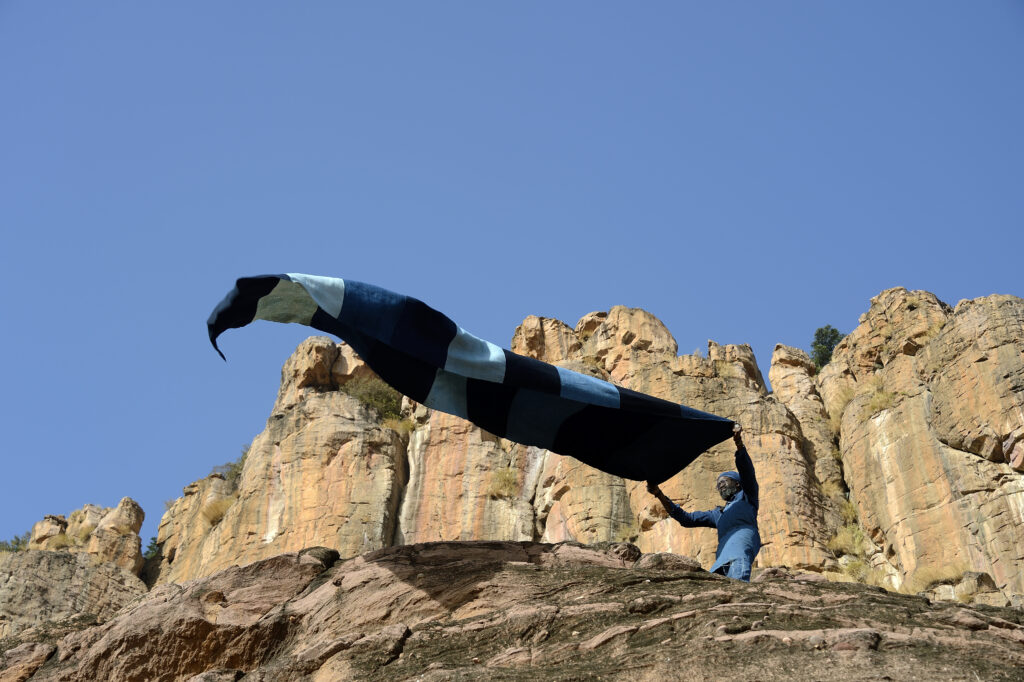
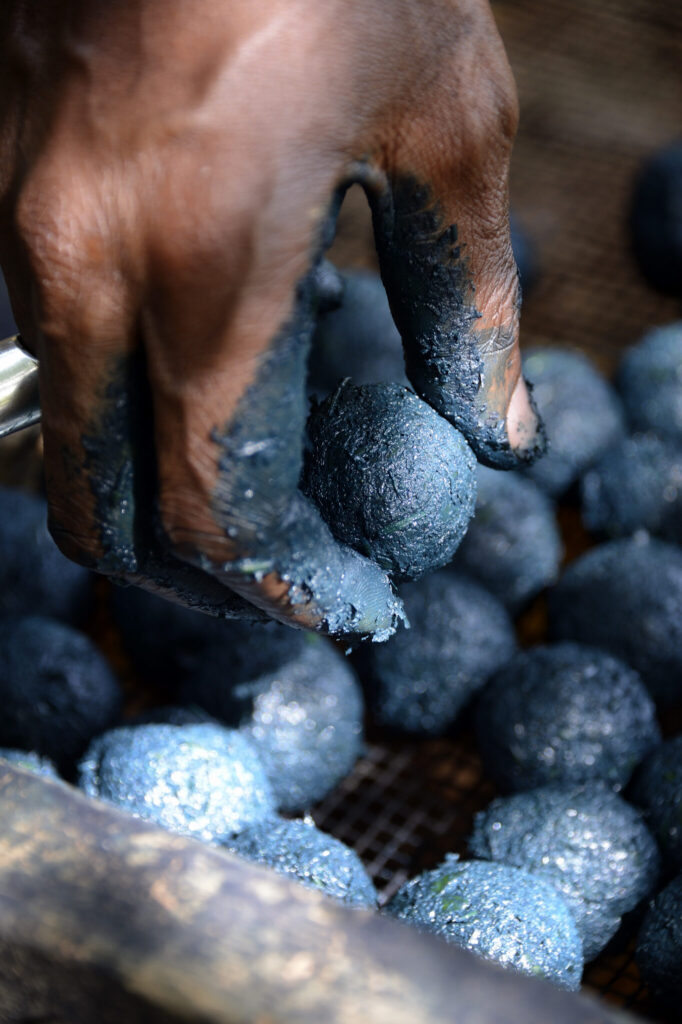
Decolonization is a process of remembering and reclaiming. A callback to the divine. A return to who we are.
To artist and scholar Aboubakar Fofana, indigo dyeing as practiced in West Africa, is deeply spiritual. He recognizes that by recalling the language used by the indigenous cultures that engage with indigo we can expand our consciousness of the plant and its true meaning. And through that, affirm the autonomy within our humanity.
In conversation with Pratt Associate Professor and anthropological archaeologist, Uzma Rizvi, Fofana will explore the ontology of indigo and invite us to challenge western perceptions of the plant and dyestuff. Through their shared interest in decolonizing the study of human history, the artist and scholar will unpack the implications of learning in the west to interrogate what we know about the color that changed the world.
This public program is an hour with 30 minutes set aside for community Q + A.
Date
Thursday, June 20th, 2024
Time
6:30 pm – 8 pm ET
Location – Hybrid
In person at The Design Center Gallery at Pratt Institute, located at 212 Steuben St, Brooklyn NY 11205
Online, a link will be sent to participants the week before the lecture.
Cost
Tickets for this event are sold on a sliding scale beginning at $10 with a suggested donation of $25, but if you wish to pay less or more than the suggested donation, you may select a different amount from the drop down menu. As always, we are grateful for your support, which ensures the continuation and preservation of textile knowledge. Thank you for making this series possible.
Tatter Library is a registered 501(c)3. Our speaker series is part of our community programming and proceeds support the continued success of our talks with artists, scholars, and historians we admire. For this event, all ticket proceeds will go towards keeping this series alive.
Scholarships
If you would like to apply for a scholarship spot, please email info@tatter.org with a short letter with insight into your creative and academic journey and how you think this lecture might support your growth.
Recording
Following the live session, a recording of the talk will be made available to all registrants for a limited period of time.
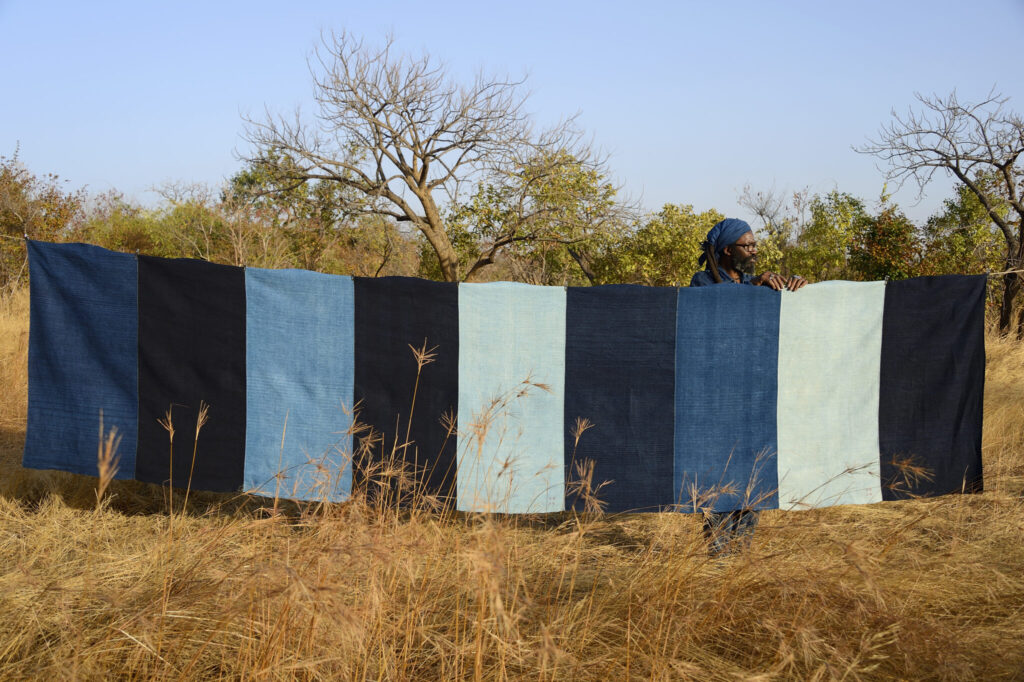
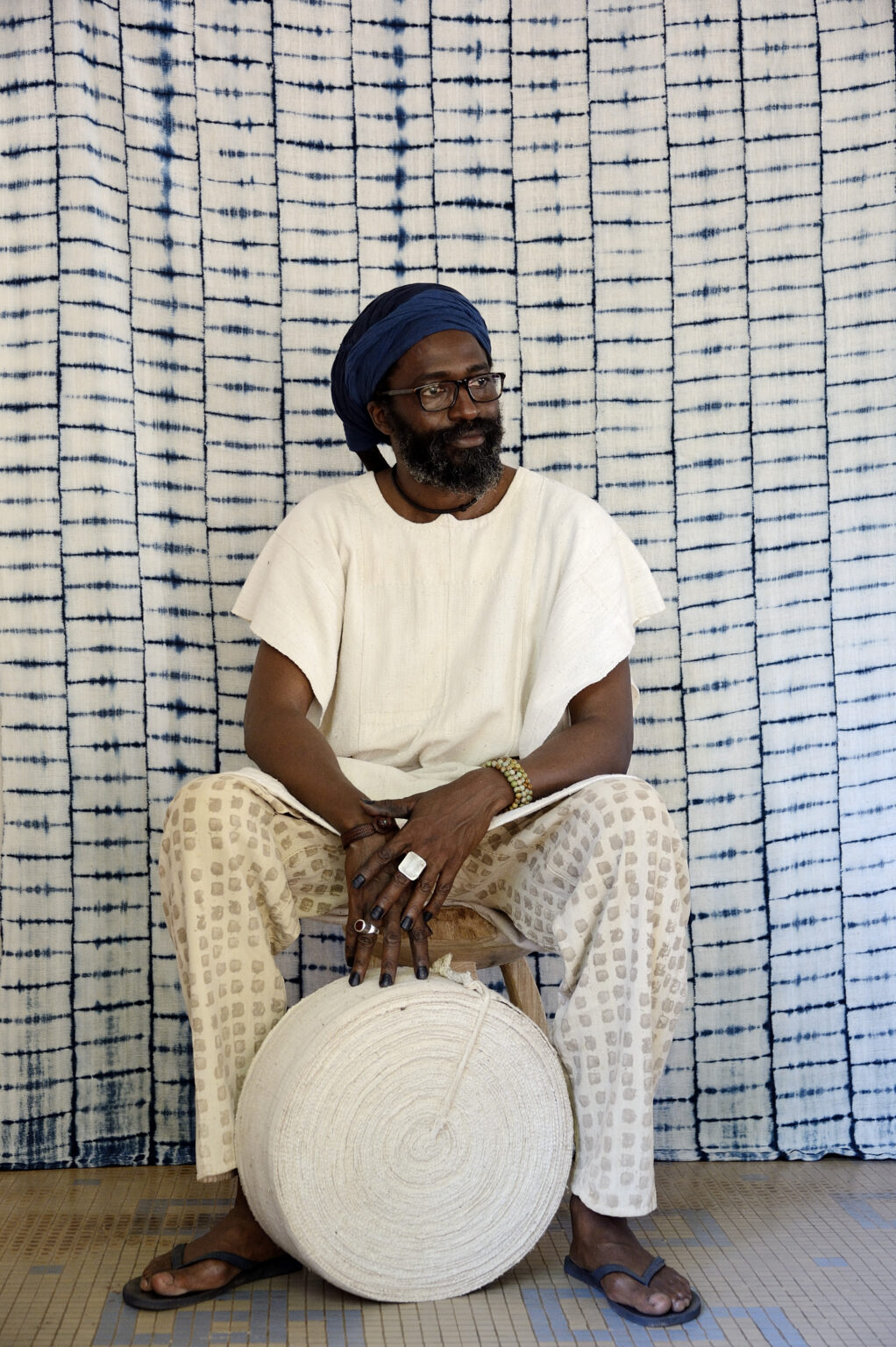
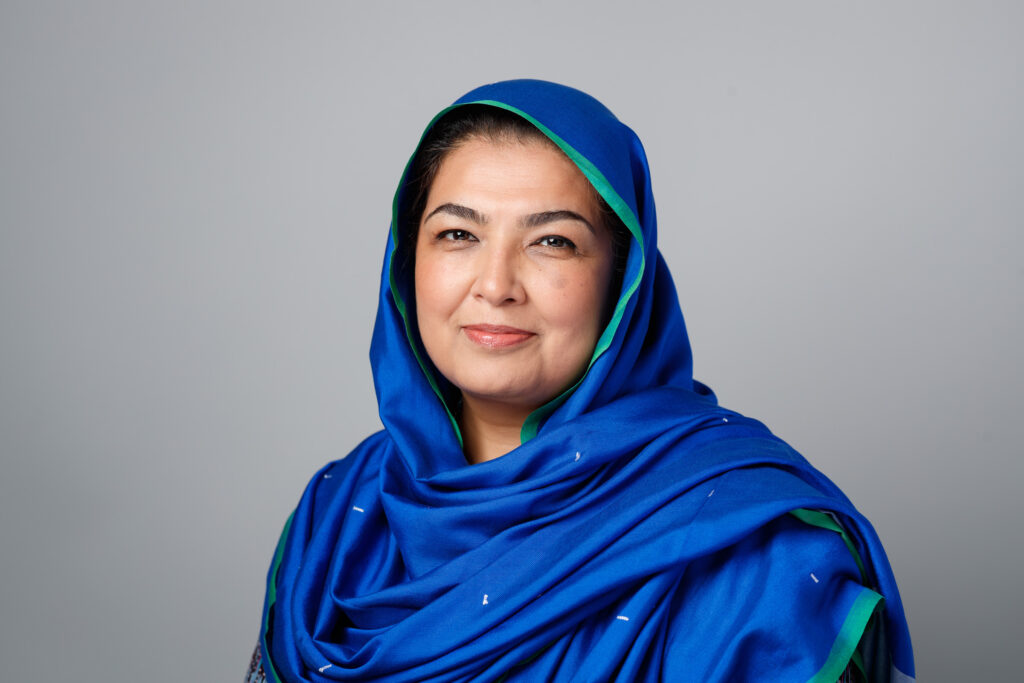
OUR LECTURER
Born in Mali and raised in France, Aboubakar Fofana is a multidisciplinary artist and designer whose working mediums include calligraphy, textiles, and natural dyes. He is known for his work in reinvigorating and redefining West African indigo dyeing techniques, and much of his focus is devoted to the preservation and reinterpretation of traditional West African textile and natural dyeing techniques and materials.
Fofana’s work stems from a profound spiritual belief that nature is divine and that through respecting this divinity, we can understand the immense and sacred universe. His raw materials come from the natural world, and his working practice revolves around the cycles of nature, the themes of birth, decay, and change, and the impermanence of these materials. He sees the conception and realisation of this work as a form of spiritual practice which is shared with his audience.
Fofana is currently deeply involved in creating a farm in conjunction with the local community in the district of Siby, Mali, in which the two types of indigenous West African indigo will be the centerpiece for a permaculture model based around local food, medicine, and dye plants. This project hopes to contribute to the rebirth of fermented indigo dyeing in Mali and beyond, and represents his life’s greatest project to date.
OUR MODERATOR
Uzma Z. Rizvi is an anthropological archaeologist. She received a PhD in Anthropology from the University of Pennsylvania, followed by a postdoctoral fellowship at Stanford University. She specializes in the archaeology of the first cities while teaching anthropology, ancient urbanism, new materialisms, critical heritage studies, decolonization/the postcolonial critique, and social practice.
Rizvi’s own work intentionally interweaves archaeology with cultural criticism, philosophy, critical theory, art, and design. With nearly two decades of work on decolonizing methodologies, intersectional and feminist strategies, and transdisciplinary approaches, her work has intentionally pushed disciplinary limits and demanded ethical decolonial praxis at all levels of engagement, from teaching to research.
Rizvi is the Principal Investigator for the Laboratory for Integrated Archaeological Visualization and Heritage (LIAVH.org), an intentionally interdisciplinary, feminist, anticolonial, and antiracist space bringing together archaeological research with data management, visualization, and heritage practice. She is currently working with her team at the UNESCO World Heritage Site of Mohenjo-Daro, Pakistan.
Rizvi is the President of the Academic Senate.
